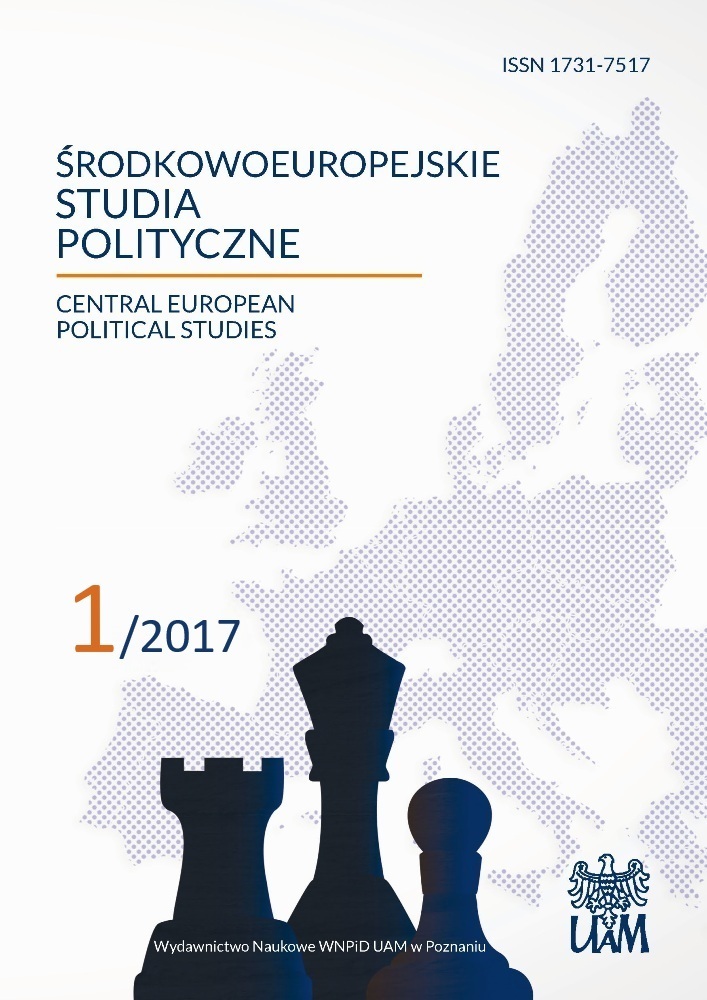Abstract
Post-truth was acknowledged as the word of 2016 by the editors of the Oxford Dictionaries. Several months ago it was a fashionable term used by intellectuals and scholars in the social sciences to offer a better or worse description of the reality of the Western world and the quite unexpected collapse of its order. Today, post-truth is successfully employed in everyday speech by columnists, journalists and even satirists. Given this rapid popularity of post-truth, it is worth asking the question of whether a new term is required to complement the conceptual apparatus of political science, and if such a term can make any contribution to studies into the political reality, particularly when such events as Brexit or the election of Donald Trump as the 45th US President are taken into account. The purpose of this paper is therefore to answer the question of the extent to which post-truth is conceptually autonomous. Another question concerns the dissemination of false information and the participation of new media in this process.
References
Arendt H. (1985), Prawda a polityka, „Literatura na świecie”, nr 6.
Borudsiak B., Pierański B., Romanowski R., Strykowski S. (2015), Automatyzacja personalizacji reklamy internetowej, „Marketing w praktyce”, nr 3.
Chudy W. (2003), Filozofia kłamstwa. Kłamstwo jako fenomen zła w świecie osób i społeczeństw, Warszawa.
Chudy W. (2003), Kłamstwo, w: Encyklopedia Pedagogiczna XXI Wieku, t. 2, red. E. Różycka, Warszawa.
Chudy W. (1990), Kłamstwo korupcją prawdy, człowieka i społeczeństwa, „Przegląd Powszechny”, nr 6.
Chudy W. (2003), Kłamstwo społeczne i jego skutki, w: Błąd antropologiczny, red. A. Maryniarczyk, K. Stępień, Lublin.
Festinger L. (1957), A Theory of Cognitive Dissonance, Stanford.
Filipowicz M. (2016), Kłamstwo jako zagrożenie współczesnego społeczeństwa, „Interdyscyplinarne Studia Społeczne”, nr 1.
Flood A., ‘Post-truth’ named word of the year by Oxford Dictionaries, „The Guardian”, https://www.theguardian.com/books/2016/nov/15/post-truth-namedword-of-the-year-by-oxford-dictionaries.
Higgins K. (2016), Post-truth: a guide for the perplexed, „Nature”, nr 9 (540).
Jeran A. (2008), Plotka zawsze realna (i zawsze wirtualna) – o różnicach i podobieństwach w plotkowaniu w świecie realnym i wirtualnym, w: Komunikacja społeczna w świecie wirtualnym, red. M. Wawrzak-Chodaczek, Toruń.
Juza M. (2013), Memy internetowe – tworzenie, rozpowszechnianie, znaczenie społeczne, „Studia Medioznawcze”, nr 4 (55).
Keyes R. (2004), The Post-Truth Era: Dishonesty and Deception in Contemporary Life, New York.
Kreft J. (2016), Schyłek tradycyjnego dziennikarstwa prasowego a nowa logika mediów, „Zeszyty Prasoznawcze”, nr 2 (226).
Lockie S. (2017), Post-truth politics and the social sciences, „Environmental Sociology”, nr 3.
Pawełczyk P. (2000), Socjotechniczne aspekty gry politycznej, Poznań.
Pawłowski Ł. (2016), Prawda się kończy, także u nas. (Polemika z Dariuszem Rosiakiem), „Kultura Liberalna”, nr 416 (52), http://kulturaliberalna.pl/2016/12/28/pawlowski-rosiak-post-prawda-kaczynski-polemika/.
Post-truth, https://www.oxforddictionaries.com/press/news/2016/12/11/WOTY-16.
Segmentacja, targeting, pozycjonowanie na rynku politycznym (2014), red. M. Cichosz, D. Skrzypiński, Wrocław.
„Stare” i „nowe” media w kontekście kampanii politycznych i sprawowania władzy (2010), red. M. du Vall, A. Walecka-Rynduch, Kraków.
Stone P., Data firm in talks for role in White House messaging – and Trump business, https://www.theguardian.com/us-news/2016/nov/23/donald-trumpcambridge-analytica-steve-bannon.
Suiter J. (2016), Post-Truth Politics, „Political Insight”.
Tallis B. (2016), Living in Post-truth: Power/Knowledge/Responsibility, „New Perspectives Interdisciplinary Journal of Central & East European Politics and International Relations”, nr 10 (24).
Wnuk-Lipiński E. (1992), Fałszywe świadectwo w życiu publicznym, „Więź”, nr 1.
Zięba K. (2010), Skuteczność działań marketingowych, „Zeszyty Naukowe. Polityki Europejskie, Finanse i Marketing”, nr 3 (52).

